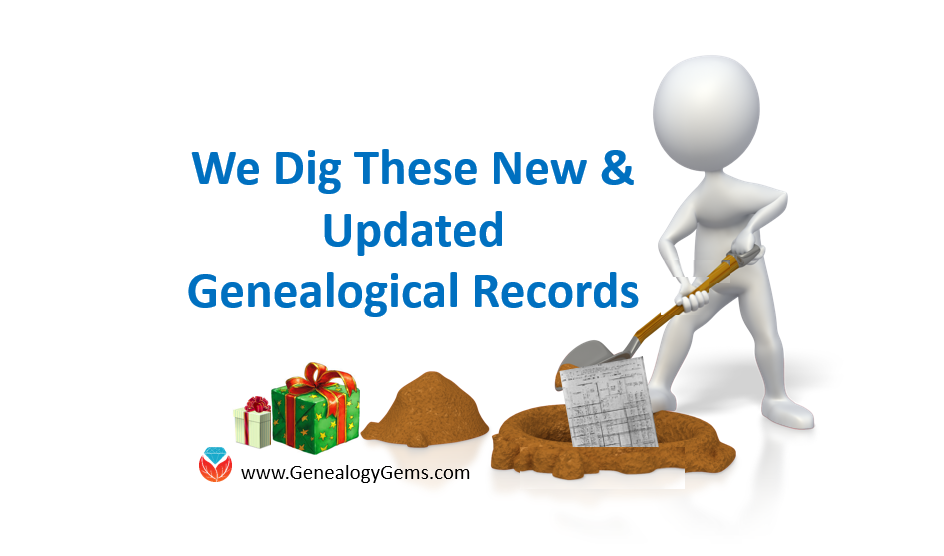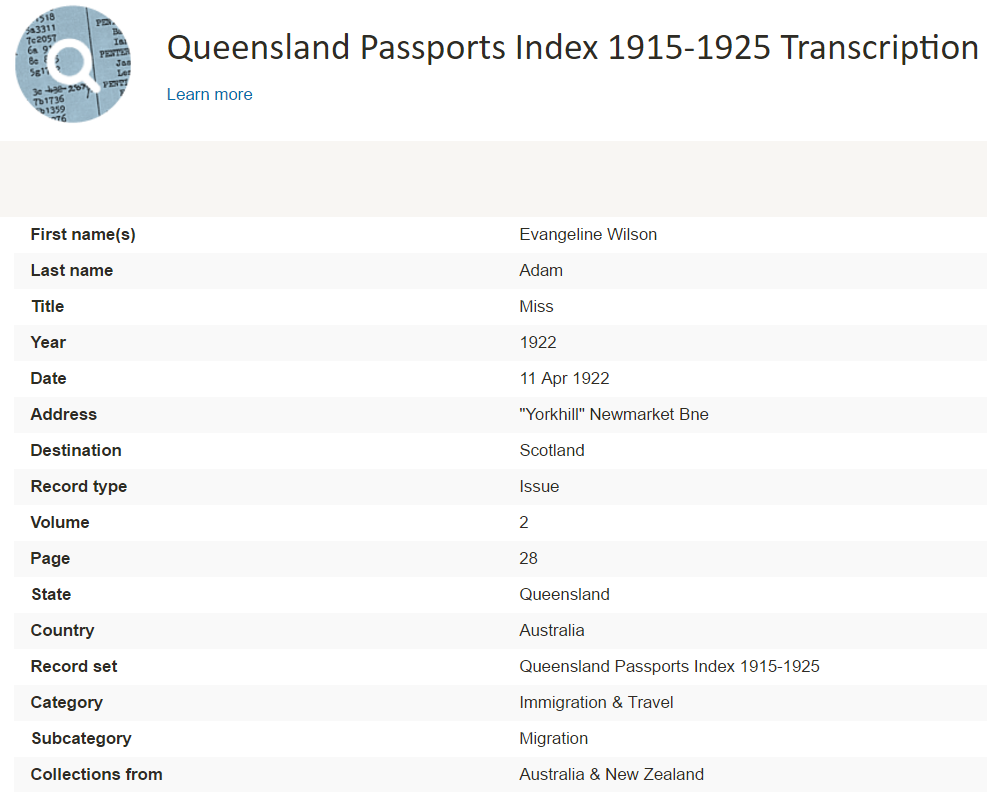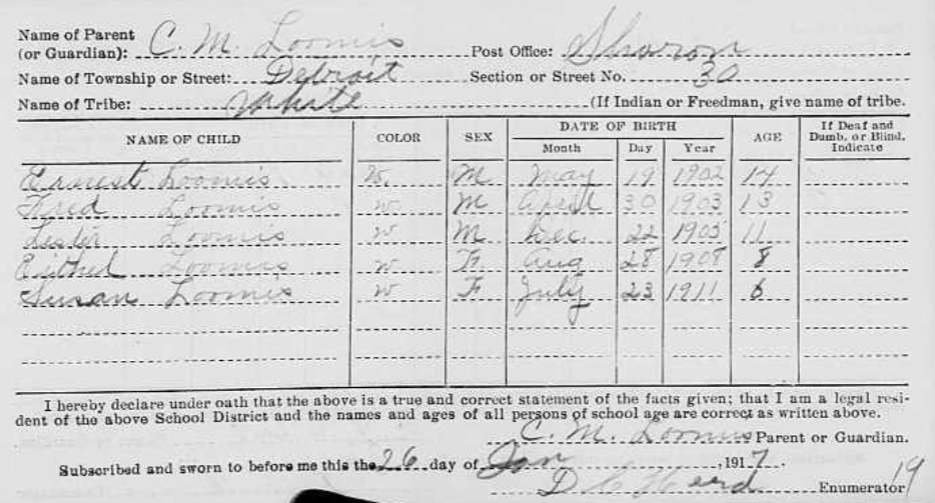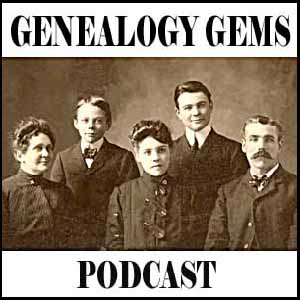by Lisa Cooke | Dec 23, 2016 | 01 What's New, Records & databases
Happiest of holiday greetings to you! Celebrate with us as we share the gift of new and updated genealogical collections like censuses, histories, and school records from all around the world. This week: the United Kingdom, Australia, France, Peru, Ecuador, and the U.S.

United Kingdom – Military
New records at Findmypast this week include the British Army discharges, 60th Foot 1854-1880. These British Army discharges will allow you to find your ancestor who served in the King’s Royal Rifle Corps. The records will contain service numbers, ranks, and the reason for discharge.
The 60th Regiment of Foot saw action in the Seven Years War, Napoleonic Wars, and Peninsular War. They have served in India, Burma, Afghanistan, China, and South Africa. The men found in these records most likely fought in The Indian Mutiny (1857-1859), in Canada during the Fenian raids (1866-1867), and The Zulu War (1879).
United Kingdom – Histories
Over 13,000 records have been added to Findmypast’s collection titled Britain, Histories & Reference Guides. The collection consists of 65 volumes on genealogy, heraldry, palaeography, geography, and more. The information found in these records may provide you with more insight into the lives of your ancestors and an better understanding of British life. For a more detailed description of the history publications and what each may offer, see the list at the bottom of the collection page.
England – Middlesex – Military
The Middlesex War Memorials at Findmypast contain over 21,000 transcripts of memorials from over 40 parishes across the English county of Middlesex. The new additions to this collection list the names of soldiers who died while on active service between 1845 and 1998.
Each record will include a transcript of the individual entry from the war memorial and a full transcript of all the names that appeared alongside your ancestor. Other information found on the records may include the conflict they served in, where and when they were killed, a brief description, and additional notes. Transcripts also include links from the West Middlesex Family History Society providing greater detail about the memorial such as the memorial’s location and explanations of abbreviations.
Australia – Queensland – Passports
Also at Findmypast this week, the Queensland Passports Index 1915-1925 of over 13,000 names is a helpful collection for those searching traveling ancestors! This collection is an index. The original registers were compiled by the Collector of Customs, Brisbane, and are currently held by the National Archives of Australia. Each record includes a transcript and may contain the following information:
contain the following information:
- Name
- Year the record was taken
- Address or residence
- Date they applied for or renewed a passport
- Their intended destination
Depending on the period covered, the registers themselves may include additional information such as passport numbers, warrant numbers, and remarks. Remarks may include details about soldiers returning home from the Great War.
Australia – New South Wales – Census
Explore the only surviving records from the New South Wales 1841 Census at Findmypast. Containing almost 11,000 names, this collection includes both fully searchable transcripts and scanned images of the original household returns, affidavit forms, and abstracts of returns.
Censuses like these often help piece together the family unit. Names, sex, ages, and birth places are common finds in this record set. Images of the original forms may also occasionally provide you with additional information such as:
- Religion
- Occupation
- Civil condition
The amount of information included will vary depending on the type of document.
France – Dordogne – Census
New and updated genealogical collections at FamilySearch this week include the France, Dordogne, Censuses, 1856 and 1876. These censuses may contain the following information:
- Surname
- Given name
- Age
- Occupation
- Nationality
- Position in the household
Each record contains a transcription and digital image. These census records are in French.
Peru – Civil Registration
Civil registration records are particularly helpful when church records are unavailable. FamilySearch has added new records to their collection titled Peru, La Libertad, Civil Registration, 1903-1998. Births, marriages, deaths, and other records are contained in this collection set. Some of these records have been indexed and are searchable. Additional images and indexed records will be published as they become available. These records are written in Spanish.
Ecuador – Church Records
FamilySearch collection Ecuador, Catholic Church Records, 1565-2011 contain some new Catholic Church records created by parishes and dioceses in Ecuador. These records include: baptisms, confirmations, marriages, pre-marriage investigations, deaths, and indexes. Some of the records have been indexed and are searchable. Remember, you can always browse the collection of nearly 1.5 million records. Church records are a great resource when civil records have been lost or damaged.
United States – Oklahoma – School Records
Oklahoma, School Records, 1895-1936 are now available to search on FamilySearch. This collection includes school records and annual censuses of pupils who attended schools in Woodward County, Oklahoma between 1895 and 1936. The records are generally arranged by years and then in numerical order by school district. Many of them list the name of pupil, pupil’s date of birth, and the names of parents or guardians.

The records helped local governments determine funding needs for individual schools so the information is generally reliable. These records can also provide supporting evidence of parental and familial relationships.
Learn More About School Records for Genealogy
 From schools and orphanages to prisons, hospitals, asylums, workhouses, and more, there’s a good chance one or more of your ancestors might be found on record in one of the many types of institutions. In this Premium eLearning video, Institutional Records Research Methods, Lisa Louise Cooke presents methods for finding your ancestors in institutional records, from establishing a workflow and investigating clues found in the census and other records to resources and strategies for digging up the records. This 40-minute video includes a downloadable handout and is available right now to all Premium eLearning members. Click here to sign up!
From schools and orphanages to prisons, hospitals, asylums, workhouses, and more, there’s a good chance one or more of your ancestors might be found on record in one of the many types of institutions. In this Premium eLearning video, Institutional Records Research Methods, Lisa Louise Cooke presents methods for finding your ancestors in institutional records, from establishing a workflow and investigating clues found in the census and other records to resources and strategies for digging up the records. This 40-minute video includes a downloadable handout and is available right now to all Premium eLearning members. Click here to sign up!
Disclosure: This article contains affiliate links and Genealogy Gems will be compensated if you make a purchase after clicking on these links (at no additional cost to you). Thank you for supporting Genealogy Gems!
by Lisa Cooke | Nov 23, 2016 | 01 What's New, Findmypast, Scottish Genealogy
ScotlandsPeople has a new look and more free features. Here’s what the makeover involves, and how customers of the former host Findmypast.com are affected.
 Recently, ScotlandsPeople gained a new site host, after finishing its previous contract with Findmypast.com. ScotlandsPeople is the official Scottish government website for searching government records and archives.
Recently, ScotlandsPeople gained a new site host, after finishing its previous contract with Findmypast.com. ScotlandsPeople is the official Scottish government website for searching government records and archives.
Hundreds of thousands of people use it each year to research their family histories and access documents such as censuses, statutory and parish vital records, valuation rolls, wills and other critical historical records.
New on ScotlandsPeople
ScotlandsPeople has undergone its most extensive overhaul since 2010. It recently relaunched with several new features, including free content and services. Here’s a summary list taken from an article on the site:
- You can now search indexes to records, including statutory records of births, deaths and marriages, free of charge for the first time. (You will be charged when you view or download a record image.)
- The improved site design allows you access across digital devices.
- An enhanced search function makes it easier to locate and view records.
- New features include a quick search for people (across all records indexed by name) or the advanced search for specific types of records.

- You can now link to the Register of Corrected Entries from the relevant entry in a statutory register free of charge.
- Transcriptions of the 1881 census can now be read without charge.
- Indexes to births, marriages and death for 2015 and early 2016 have been added.
- You can now search coats of arms up to 1916.
- There are now more than 150,000 baptism entries from Scottish Presbyterian churches other than the Old Parish Registers of the Church of Scotland. More will be added in the near future, including marriages and burials.
- Over the next few months, more records will be added from the National Records of Scotland, including records of kirk sessions and other church courts.
Effect on Findmypast.com users
So, how did this transition affect Findmypast.com subscribers? Did they lose any access to Scottish records? No, says company rep Jim Shaughnessy: “Nothing is changing from a Findmypast perspective. Because of how Scottish records work, we didn’t have a reciprocal arrangement with ScotlandsPeople; our users didn’t get access to their records. We’ll continue to have the extensive Scottish records we already have, our users aren’t going to lose anything at all.”
 Findmypast.com has Scotland’s census for 1841-1901, indexes to births, baptisms and marriages back to the 1560s, and some other collections. Click here to search Scottish records on Findmypast.com.
Findmypast.com has Scotland’s census for 1841-1901, indexes to births, baptisms and marriages back to the 1560s, and some other collections. Click here to search Scottish records on Findmypast.com.
by Lisa Cooke | Apr 9, 2013 | 01 What's New, NARA, Records & databases, Research Skills
Beware: Personal Opinions are coming your way in this article!
In my book The Genealogist’s Google Toolbox I emphasize how to use Google to determine what is already available and free online before investing your limited time and money in offline family history searching. Smart genealogists allocate their resources wisely, getting the most bang for their buck. And collaboration between individual genealogists allows us to accomplish even more.
 It looks like the U.S. Federal Government could learn a thing or two from savvy genealogists. The Washington Times is reporting that Congress’s auditor has discovered that our tax payer money given to the federal government isn’t being spent very wisely. (Imagine that!) Agencies fail to collaborate and share information, creating redundancy and overspending.
It looks like the U.S. Federal Government could learn a thing or two from savvy genealogists. The Washington Times is reporting that Congress’s auditor has discovered that our tax payer money given to the federal government isn’t being spent very wisely. (Imagine that!) Agencies fail to collaborate and share information, creating redundancy and overspending.
One example from the article: the Commerce Department “has been charging other government agencies millions of dollars for reports that the other agencies could just as easily have gotten online, for free – often with a Google search.”
This news makes it even harder to swallow the news that the National Archives and Records Administration (NARA) is suffering reduced hours of service due to budgetary issues.
The Bottom Line:
Google Twice, Pay Once (and only if you have to!)
by Lisa Cooke | Nov 22, 2013
 Genealogy Gems Podcast Episodes
Genealogy Gems Podcast Episodes
2013 – 2014 Season Nine
Episode 161
I was so impresssed with Yngve Nedrebø, the Chief archivist at Riksarkivet (National Archives of Norway) who I recently interviewed for the Family Tree Magazine podcast that I’m publishing an extended version of that interview here on the Genealogy Gems Podcast. This is a “must hear” for those with Norwegian heritage. In this episode you’ll also hear from a fellow listener and get a chance to see his family history tour that he created in Google Earth using the techniques I teach in the Google Earth for Genealogy video CD series. And we’ll get a taste of the history of coffee.
Keywords: Norway, Norwegian, Google Earth, Family History Tour, Death Certificate, Coffee
Episode 162
Wondering how to get your kids and grandkids engaged in family history? Looking for worthwhile activities for the kids over the Christmas break? In this episode author Janet Hovorka provides answers. Our children are the future of our families, and there’s no better time to help them engage, explore and enjoy their family history! Special Guest: Janet Hovorka.
App Users: Be sure to check out the audio Bonus Content in the Genealogy Gems App!
Keywords: Kids, Grandkids, Zap the Grandma Gap, Contest Winner, Blog, Pinterest
Episode 163
Get ready to flip out with me over Flipboard. It’s a free app and web tool that you have to see to fully appreciate. In this episode I’ll take you behind the scenes at Flipboard in the Silicon Valley and talk to the folks who create the product that helps you enjoy the online content you love. I’ll also share a little discovery I made about family history when I threw my back out over the holidays (there’s got to be an easier and less painful way to do family history research!) and get you up to date on all the genealogy news.
Keywords: Flipboard, Pinterest, Rootstech, Family Health History, Magazine
Episode 164
In this episode you’ll hear what you’ve been missing and how to get it from the Ancestry Wiki. Also how to do a very specialized type of Google search you may have never tried, a French-Canadian genealogy resource, a living relative dilemma, and much more.
Keywords: Ancestry Wiki, Google Earth, Top 10 List, French Canadian, Purple Heart Video, Jamboree, DNA Swapped, BillionGraves, Evernote
Episode 165
A Blast from the Past: Revisit the remastered episode 13 (recorded back in 2007) which features World War II Service Records, and how to create a Family History Book your non-genealogist relatives will actually read.
Keywords: Print on Demand, Writing, Military
Episode 166
This episode is loaded with genealogy news, ideas, and tips. We focus on you, the listeners, and here some incredible stories of genealogical success!
Episode 167
Colonial American Genealogy with Beth Foulk. Also new online newspaper collections, NGS 2014 wrap up, and why you do research your family history.
Episode 168
This episode is all about DNA. First we’ll discuss Ancestry’s closure of some of their DNA tests, and then you’ll meet Your DNA Guide, Diahan Southard, a new regular contributor to Genealogy Gems.
Episode 169
Catch a glimpse of the silent movie era and how it was an integral part of your ancestors’ lives. In this episode, I find out more about the silent movies my grandmother cataloged in her diary, and how they molded a generation. Interview with Film Historian Sam Gill of the Niles Essanay Silent Film Museum.
Episode 170
Lisa Kudrow, Executive Producer of the TLC television show Who Do You Think You Are? is back to the podcast for another visit. Lisa shares her enthusiasm and feelings about the show, and her hope for its future. Also in this episode, Lisa Louise Cooke shares some incredible successes she’s experienced in her own family history journey lately.
Episode 171
Storyteller Ron Ploof discussed Project Lizzie, and sharing your family history stories with others. Other topics: A strategy for coping and excelling in the face of technological change, Online Seniors and a bit of reminiscing about party lines, a new feature for finding the genealogy topics you need at Genealogy Gems, A newspaper research tip that pays off big, family history jewelry, and the history of the first U.S. federal loan.
Episode 172
The official launch of the exciting news Genealogy Gems Book Club, a cool free online map tool British research, Google Translate, stories of inspirational finds, DNA for genealogy, and a Star Trek take on the innovations of yesteryear!
Episode 173
We all need a little inspiration now and then, and in this episode I’ll bring you some inspiring books to read, motivating comments from other listeners, and some new ideas to try. And a report on using Autosomal DNA for genealogy.
Episode 174
In this episode I’m going to share a personal story from my own family history just recently uncovered, and pull from it 3 powerful strategies that you can start using right away to further your own genealogy research in newspapers. We will also hear from author Emma Brockes in our Book Club, and Your DNA Guide will be here to explain the latest updates at AncestryDNA.

 contain the following information:
contain the following information:
 From schools and orphanages to prisons, hospitals, asylums, workhouses, and more, there’s a good chance one or more of your ancestors might be found on record in one of the many types of institutions. In this Premium eLearning video, Institutional Records Research Methods, Lisa Louise Cooke presents methods for finding your ancestors in institutional records, from establishing a workflow and investigating clues found in the census and other records to resources and strategies for digging up the records. This 40-minute video includes a downloadable handout and is available right now to all Premium eLearning members. Click here to sign up!
From schools and orphanages to prisons, hospitals, asylums, workhouses, and more, there’s a good chance one or more of your ancestors might be found on record in one of the many types of institutions. In this Premium eLearning video, Institutional Records Research Methods, Lisa Louise Cooke presents methods for finding your ancestors in institutional records, from establishing a workflow and investigating clues found in the census and other records to resources and strategies for digging up the records. This 40-minute video includes a downloadable handout and is available right now to all Premium eLearning members. Click here to sign up!
 Recently,
Recently, 


